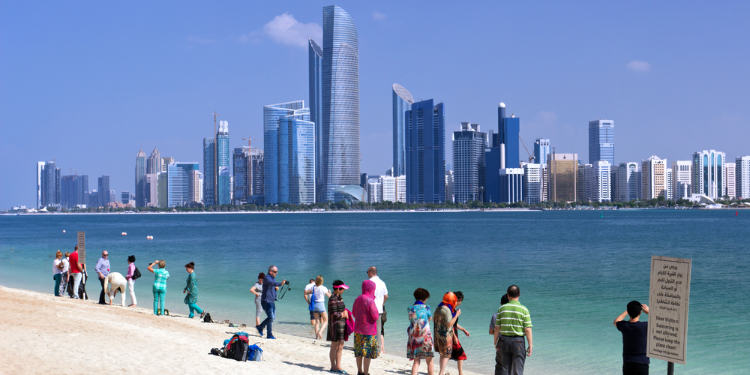
The United Arab Emirates looks like they are quickly achieving its goals! In the early months of the Covid pandemic, the country soon became an ideal destination for expatriates. But today, the communication campaign is coupled with long-term and ambitious changes to attract more foreigners. There are the new visas, the extension of the categories of eligible applicants for the Golden Visa, along with the relaxation of some rules regarding the consumption of alcohol, etc. The new measures confirm the trend.
Conditions for dependents' sponsorship
Foreigners constitute nearly 90% of the Emirati population. And while the United Arab Emirates (UAE) claims to have considered the requests of expatriates who wish to bring their family members, the country has also announced two scenarios where dependents' sponsorship will be possible. The first one applies to foreigners who are related to an Emirati. To come to the Emirates, they will have to prove their relationship. The second scenario concerns foreigners who are the parents of an expat in the UAE. The sponsorship will then apply to the expat's mother, father, minor brothers and sisters, or the spouse's parents.
Expatriates sponsoring dependents must first prove that they can provide for and adequately accommodate their relatives. They are allowed to host 5 dependents if they earn at least 10,000 United Arab Emirates Dirhams (Dhs) (approximately $2,722) per month or 6 dependents if they earn at least 15,000 Dhs ($4083) per month. To host more dependents, expat will have to prove their capacity to host (in terms of income, housing, etc.) to the authorities.
There are also new developments in terms of humanitarian sponsorship. For dependents coming from countries affected by war, natural disasters, or political or social unrest, applicants will have to meet 5 conditions to qualify for a visa. Among these conditions is nationality: applicants must possess the nationality of the countries listed by the authorities. They must also be present in the UAE, be able to support themselves, and have a home. The residence visa may be extended to family members, whether they are present or not in the country.
This new resolution came into force in October 2022, but it's worth noting that in recent years, the Emirati authorities have repeatedly stepped in to redefine the contours of sponsorship, like opening the pathway to employees, single mothers, etc. But at the end of the day, the objective remains the same: to attract more expatriates.
2023: A year of sustainability for the UAE
In January, the President of the United Arab Emirates (UAE), Sheikh Mohamed bin Zayed Al Nahyan, announced that 2023 would be "the year of sustainability". The country, which will host the next United Nations Summit on Climate Change (COP 28), wants to set an example. This year of sustainability is also in line with the UAE's Vision 2021, which already included a vast plan for environmental protection and to ensure a better quality of life for its current and future inhabitants.
While foreigners who choose to live in the UAE may not always identify with sustainable development, they all agree on one thing: lifestyle, as evidenced in a recent HSBC survey conducted among over 7,000 expats living in the UAE, the UK, Australia, Hong Kong, the US, Singapore, China and the Channel Islands and the Isle of Man.
36% of respondents said that lifestyle is best in the UAE, which offers a better social life and guarantees better health. Just as many consider that the chances of increasing their income are greater in the UAE, 37% believe that the country offers the best environment to earn more. Sustainability is not far behind! 30% of respondents believe that the UAE offers a more sustainable environment, and 34% consider the country to be a good place to live as a family.
An attractive destination for foreign investors and wealthy expats
Still, the UAE has a long way to go before becoming the "number one destination for expatriates". The same HSBC study reveals that Australia, Singapore and the UK are not far behind in terms of lifestyle (26%). They are even ahead of the UAE when it comes to work/life balance. Australia is considered the most balanced, with 31% of respondents, ahead of the UK and Singapore with 29% and the UAE with a 26% score. While the UAE is considered the best place to earn more and invest, Singapore is the country where respondents say they are the most likely to boost their career or get a promotion (24%, compared to 18% for the UAE).
Other difficulties have been identified by expatriates in the UAE. Many of them mention issues about their settling-in process and their first steps in the country. 44% of respondents reported difficulties opening a bank account or accessing public services. 51% said they were not prepared for the move and all its financial implications. 70% said they needed help understanding UAE taxation, especially for investing.
Regardless of these drawbacks, the UAE's preserves a very positive image. Like Dubai, which succeeded in attracting nearly 100,000 expatriates between the end of 2020 and April 2022, other major locations, including Abu Dhabi and Sharjah, are steadily gaining points with foreigners, especially the wealthy ones.



















